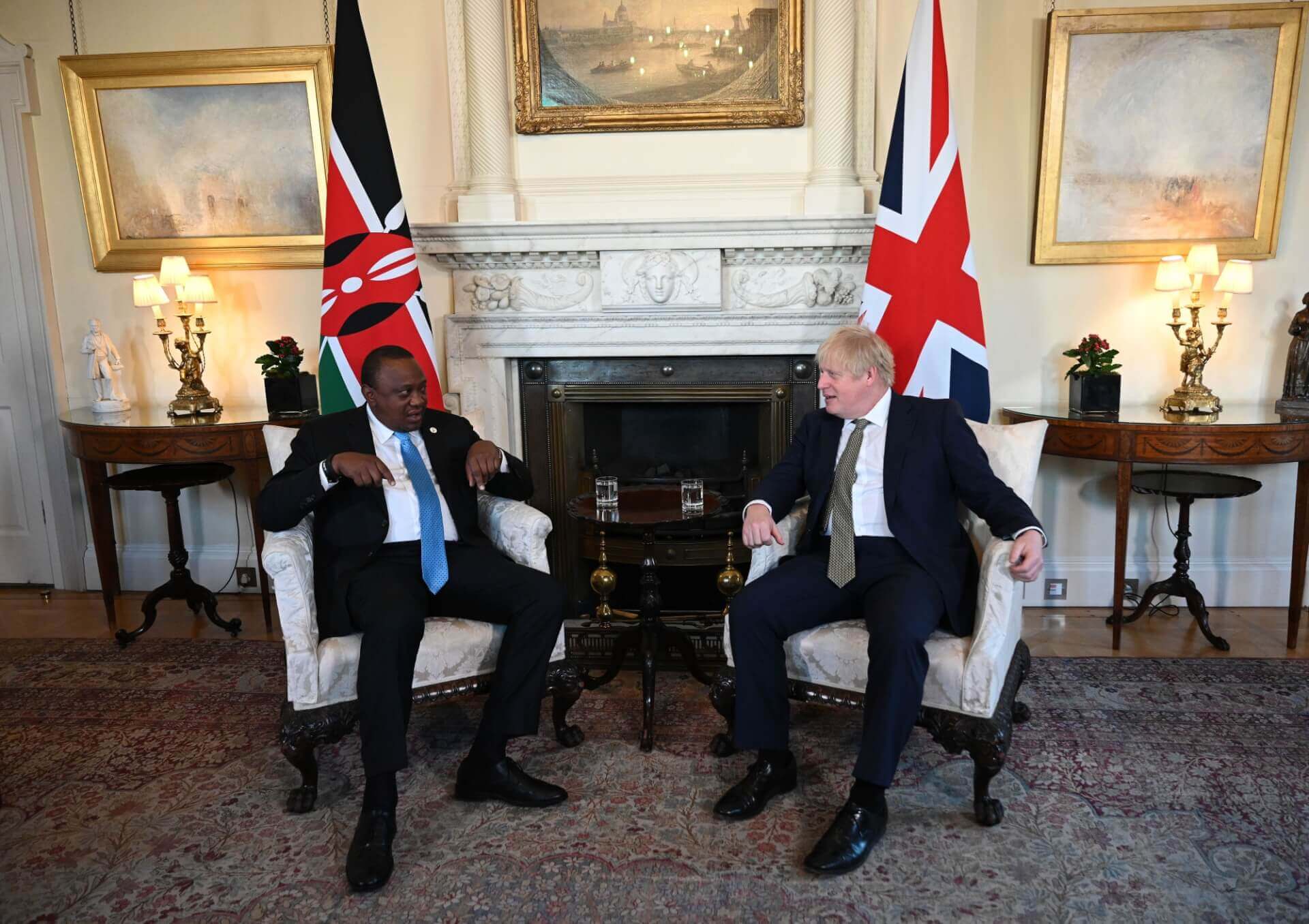On Thursday, Kenyan President Uhuru Kenyatta and United Kingdom (UK) Prime Minister (PM) Boris Johnson held a virtual meeting in which they called on the world’s rich countries to support the Global Partnership for Education (GPE) initiative, which seeks to increase education levels among children in low-income nations. Their meeting also included a virtual conversation with schoolchildren in both Nairobi and London.
Also in attendance were Cabinet Secretary of Education George Maghoa, Cabinet Secretary of Information and Communications Joe Mucheru, Head of Public Service Joseph Kinyua, MP Tim Wanyonyi, Senior Advisor in the Office of the President Ruth Kagia. The British side, meanwhile, was represented by British High Commissioner to Nairobi Jae Marriott. The British leader also invited former Australian Prime Minister Julia Gillard to participate, given that she is the chairperson of the GPE.
The GPE has a target financing goal of $5 billion, which will be directed towards supporting the education of 175 million children across 87 lower and middle-income countries. The GPE’s website describes it as the “largest global fund solely dedicated to transforming education in lower-income countries.” Among the donor countries to the fund are: Australia, Belgium, Canada, Denmark, the European Union, Finland, France, Germany, Ireland, Italy, Japan, Luxembourg, the Netherlands, Norway, South Korea, Spain, Sweden, Switzerland, the United Arab Emirates, the UK, and the United States of America.
The GPE works hand-in-hand with civil society organisations (e.g. Global Campaign for Education and Education International, multilateral organisations (e.g. World Bank, African Development Bank, Asian Development Bank, Islamic Development Bank, UNICEF, UNESCO, and UNCHR), the private sector (e.g. Global Business Coalition for Education), private foundations (e.g. Children’s Investment Fund Foundation (CIFF), Comic Relief, Dubai Cares, Conrad Hilton Foundation, Open Society Foundations, Porticus, and the Rockefeller Foundation), youth and teacher organisations, and a number of international donors.
Supporting the goals of the organisation, Kenya and UK will host a high-level summit in July that will include a fundraising event.
Kenyatta said at the meeting: “Of course in some parts of the world like Kenya and, many other parts of the globe resources are scarce. That is why Boris and I are really trying to work hard in the next couple of months to raise money to ensure no child is left behind, and everyone has an opportunity to get quality education that gives them a quality foundation to be great citizens of the globe in the years to come.”
Meanwhile, PM Johnson said: “We want the world to come together, we want the richest countries to make a big contribution to educating young people of the planet. We want to bridge the digital divide, we are going to help people with technology and we are also very focused on the divide between boys and girls.”
He added that the UK’s goal was to provide “quality education” to 88 million girls, saying, “In some countries, girls are not getting the education they need and people aren’t treating girls the same as boys when it comes to education. They are not getting the same funding and attention.”
The latest interaction between the Kenyan and British leaders follows a meeting two weeks ago, when Johnson pledged to raise the $5 billion that GPE seeks. Kenyatta and Johnson hope to announce that this goal has been achieved at the Global Education Summit in July.

